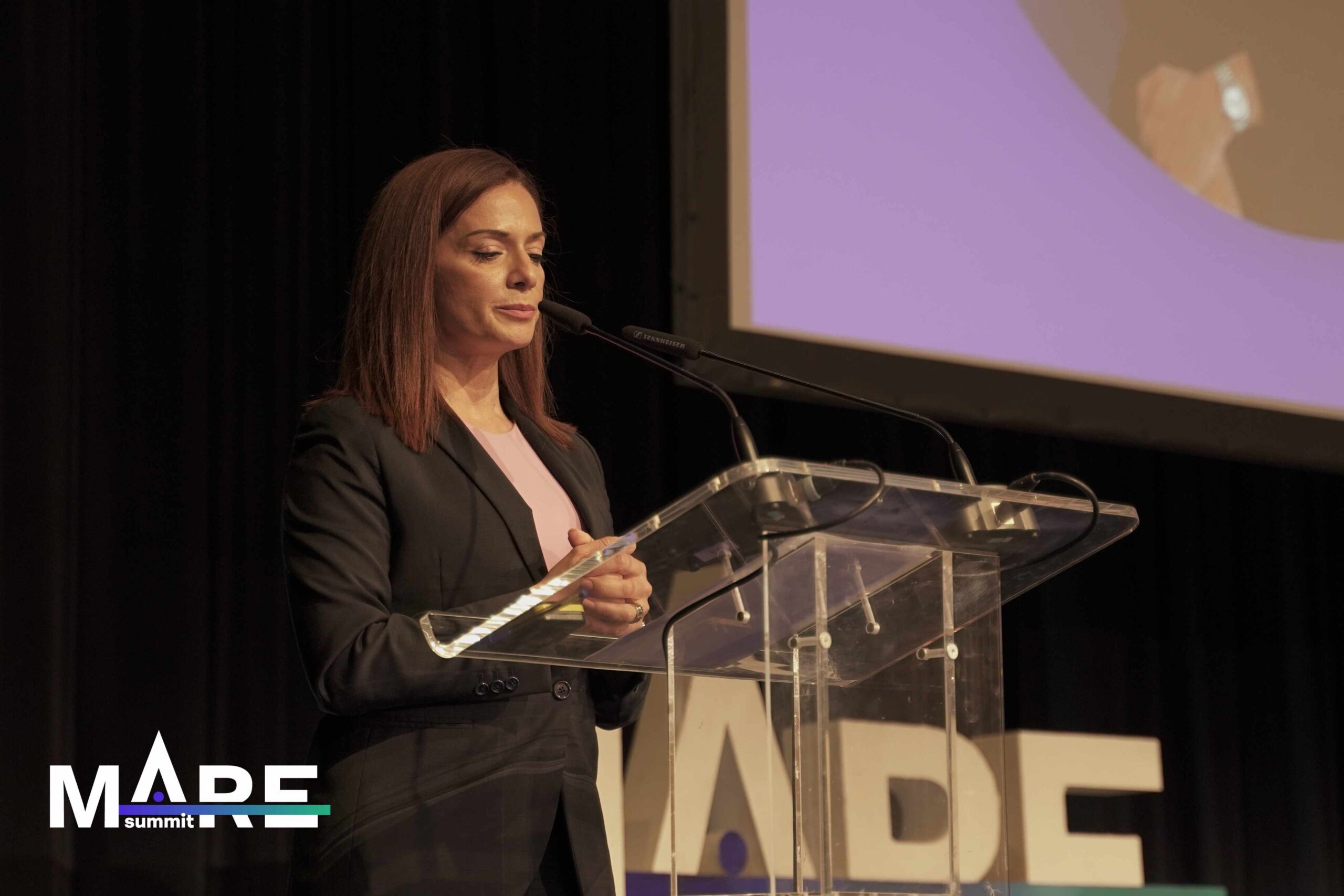Full speech of Hon. Miriam Dalli at MARE Summit 2022
The following is the full, unadulterated speech that Hon. Miriam Dalli, Minister for Energy, Enterprise and Sustainable Development, delivered on the second day of MARE Summit.
Good morning,
It is my pleasure to address the MARE Summit and I hope that this summit will serve to help transform further business models into ones that are greener and more sustainable.
It goes without saying that the construction sector is an important economic sector and as such, this industry has an important role to play for our country to reduce its emissions and edge closer towards sustainable development.
By 2020, the Maltese construction sector employed over eighteen thousand people, representing a staggering 65.6% increase, when compared to 2010. It is also a sector that sees a high turnover – between 2010 and 2020, the total turnover in the broad construction sector increased to approximately 150%.
So, how can we ensure that this growth is contributing towards the green transition, including energy-efficiency renovations and the greening of private and public buildings?
Under the Recovery and Resilience Facility, Malta has been allocated over three hundred million euros in grants. €60 million of this has been allocated for deep retrofitting and renewable energy installations. If one had to think of the best business model which real estates should adopt for buildings, the answer is easy: Green Buildings make real business sense.
New Construction needs to address the needs for future generations. By building greener buildings, one is naturally opting for:
- lower operational costs,
- building better and healthier buildings for an improved well-being,
- increased quality assurance and
- higher asset value.
To achieve high quality buildings, the essential tools are energy efficient designs and technologies.
The Maltese government has launched the economic strategy for the Maltese islands. Targeting climate neutrality by 2050. This commitment requires urgent action and changes to the built environment. The operation of buildings accounts for around 40% of emissions, mainly attributed to heating, cooling and electricity use.
It is a fact that Malta is the lowest emitter per capita in the European Union, however, we must look beyond. We have make sure that those industries considered as the backbone of our economy target and tap these opportunities that address emissions.
Post-pandemic, Malta, like everyone else, is experiencing a rise in inflation. Being an island, cut-off from mainland Europe, does not help in terms of importation of materials. Therefore, working and thinking sustainably can surely only help. Are we doing enough to exploit this industry in the most sustainable and responsible way possible? How can we accelerate the delivery of a sustainable built environment? What is Malta doing to incentivize the reuse of materials?
As a government we are highly incentivizing greener industries and enterprises. Different schemes have been launched in this regard, including the Business Re-Engineering and Transformation Scheme, which is a scheme specifically designed to optimise the use of technology and embrace green technology and practices.
The Smart & Sustainable Investment Grant supports enterprises to invest in more sustainable and digitalised processes leading to the enhancement of competitiveness of the enterprises through the optimisation of the use of resources in their activities. Together with these schemes, managed by Malta Enterprise, the Investment Aid for Energy Efficiency Projects is especially designed to facilitate investments in technological solutions that provide higher energy efficiency and contribute directly towards a reduction in the energy requirements of the beneficiaries.
Since March last year, the government has launched a total of 55MW in renewable energy systems, able to supply 20,000 households in a single year. This comes at a massive capacity of more than 8MW for households, with an investment of more than €9 million while also extending the existing households to a 20-year Feed in Tariff period. Meanwhile, the Government is encouraging investment in medium to large scale projects with an additional capacity of 47MW with a total investment of €76 million for medium to large scale investment (40kW-1MW+). This is the largest level of commitment which Malta has ever seen in the history of renewable energy, and it goes to show the government’s commitment towards decarbonisation.
Other ongoing grant schemes include Solar Water Heaters, Heat Pumps and battery storage solutions for households where eligible applicants are granted 50% of eligible costs. In the upcoming weeks we shall also be seeing investment grants for double glazing and roof insulation for majorly renovated buildings.
We have never seen a drive for change as much as today. This cannot be a tick box exercise as it was often viewed in the past. Capital and public projects need to spearhead this drive towards low to net zero carbon buildings in a drive towards a circular economy. Whilst adopting strategies is the right way forward, it all depends on effecting tangible change. This can only be done through the commitment towards accelerating our building industry transformation. This is the only way we can bring about an Industry-wide green transformation that our Economy and our Country are committed to attract.
I wish you a fruitful discussion and look forward to seeing this Summit delivering effective change.
Thank you
Updates and further information about the summit’s developments can be followed on the official blog and on its social media channels.



